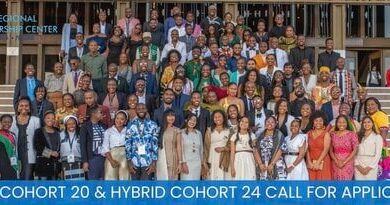
For the MIT-Empowering the Teachers (MIT-ETT) Program, applications are currently being accepted. Engineering professors who have just finished their doctorates and are now teaching at local institutions in Nigeria are eligible to apply for the semester-long MIT-Empowering the Teachers Program (MIT-ETT).
Select cohorts of faculty members (ETT Fellows) from African institutions are offered an intensive, semester-long teaching-focused engagement through the MIT-Empowering the Teachers (MIT-ETT) program. Through the ETT Fellows’ exposure to state-of-the-art student-centered teaching approaches, the organization seeks to promote innovation in science and engineering education at African tertiary academic institutions.
The overarching goal of MIT-ETT is to facilitate the development of young African faculty leadership in science and engineering education who will introduce innovation and creativity into science and engineering curricular. There are two main objectives of the MIT-ETT program: to provide young African professors with exposure to cutting-edge pedagogical methods in the highest-rated engineering and science departments in the U.S. and to provide American faculty who have a deep interest in connecting with those in their disciplines in emerging economies a concrete means of engagement.
Program objectives:
- Expose junior African professors to MIT’s advanced, problem-solving pedagogical methods
- Encourage the ETT fellows to become change-agents
- Allow the ETT fellows to expand their professional network, including MIT faculty with a deep interest in emerging economies.
During their semester at MIT, the ETT fellows:
- Observe at least 2 MIT courses in their own disciplines
- Take a curriculum design course and implement research-based instructional design principles in their courses
- Discuss & explore curricular enrichment & reform through both formal and informal interaction with the MIT community
- Participate in numerous activities to develop critical change-agent skills. These skills include entrepreneurship, effective communication, experiential learning, reflection, collaboration, systems thinking and perseverance.







